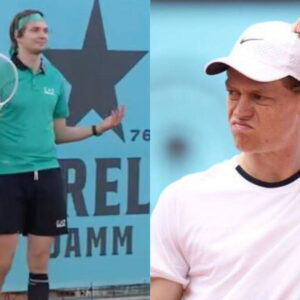It never mattered more than following a critical service break by Federer at 7-all in the fifth. The match was on his racquet at 8-7, 40-15, but Djokovic dispatched both match points. The first, with a terrific second-serve return that goaded Federer into a miss with an inside-out forehand. Next, Federer hit a mediocre approach shot that Djokovic converted into a forehand pass. Rattled, Federer made two swift forehand errors to lose serve.
Federer’s big chance had evaporated, the blown opportunities loomed large as Djokovic patiently worked his way into a final-set tiebreak (at 12-all, under Wimbledon’s then-new rule) and salted it away in an anti-climax.
The irony is that Federer was the bolder, more dazzling player the entire way. He smacked 25 aces and a whopping 94 winners, a +34 advantage in the winner-to-unforced error ratio. It was also 40 more winners than the more defense-minded Djokovic hit, while tossing in 52 unforced errors of his own—just nine fewer than his risk-taking, aggressive rival.
Had he won, Federer would have become the oldest man to win a major singles title in the Open Era. Successive wins, at age 37, over Nadal and Djokovic at Wimbledon might have become the defining moment of his career. This result amounted to a two-title swing in the record book. Had Federer added No. 21, he would have prevented his rivals from adding a title. Djokovic would have remained at 15.
I just feel like it’s such an incredible opportunity missed, I can’t believe it. Roger Federer






